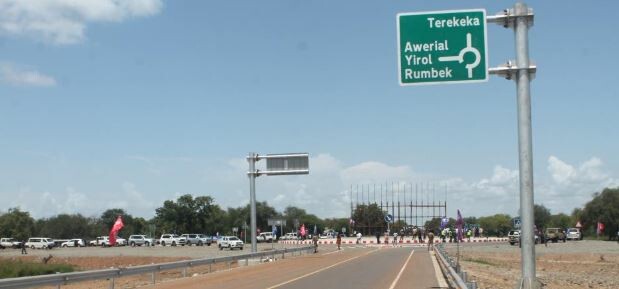Members of the Transitional National Legislative Assembly (TNLA) have vowed to hold accountable anyone implicated in the mismanagement of resources meant for the Juba-Rumbek Road Construction project.
Last month, Auditor General Steven Wondu revealed that the Juba-Rumbek road project was mismanaged after uncovering a series of irregularities and raising concerns about financial transparency, project management, and the overall quality of the road.
In a shocking report, the audit conducted in February 2023, exposed a range of problems that have plagued the project, including delays, unclear financial arrangements, and lack of proper oversight.
The audit also revealed discrepancies in the shipment of crude oil, which was supposed to fund the road construction. While records showed that a significant amount of oil had been shipped between 2019 and 2020, auditors could not determine how much of that oil was intended for the road project.
Furthermore, no information regarding oil shipments for 2020, 2021, and 2023 was provided.
When asked by Radio Tamazuj what parliament would do, John Agany, the chairperson of the TNLA Information Committee who is also the parliamentary spokesperson, stated that should anyone be found guilty, they would be held accountable.
He however said that the report is currently being scrutinized by the relevant committee which shall submit its observation after which it shall be debated by the House which will then come up with resolutions.
According to Agany, in the event questions arise regarding accountability, those found culpable will have to answer.
“After the committee finishes the scrutiny, definitely it will be tabled to the House which will then resolve. This question of accountability cannot be missed because the money is government money. There is no way that you can use the government money without accountability,” he stressed. “Our people are always very quick to conclude. The report has already been tabled to the national legislature. Now, the same has been referred to the committee concerned and they are making their findings.”
“They (committee) are standardizing, scrutinizing, and making it a reality for the house to make a decision,” Agany added.
In the report, the Auditor General highlighted the lack of involvement of the National Roads Authority as required by the contract agreement. Section 14 of the contract stipulates that an advance payment of 15 percent should have been made. Still, the audit found that only one payment of USD 104,037,200 had been made to the contractor, with several outstanding invoices totaling USD 87,824,438.
Agany, however, said the public will be informed through the media on what resolution the parliament takes after its deliberations.
“Let us not send a very negative signal that everything is going to die. Let me remind our people that this is the kind of embezzlement that people always experience. You can even be put before a court even after you are dead. People cannot forget this because this is public money,” he said. “Even if you die, a case can be opened against you and if you have some assets, they can be seized.”
For his part, Reath Mouch Tang, an SPLM-IO legislator representing Nasir County in Upper Nile State, acknowledged that relevant institutions concerned were involved in the project, rendering it suspicious.
“The recommendation we already made in the parliament is to constitute a committee because we already found out that from the beginning of the contract, no proper feasibility studies were conducted,” he pointed out. “We have also learned that the roads ministry was not included in the process. Those who are supposed to be part of road construction and were left out, need to be included.”
According to Mouch, the legislators will wait for the report to be tabled before making more recommendations.
His sentiments were echoed by Imoya Lujina Salvatore, an MP representing Ikwoto County in Eastern Equatoria State, who said it is not possible to comment unless the report is brought before the House.
“We are still waiting for the committee to present it in the House so that we debate it because there are different ideas and also some members have information concerning this Juba-Rumbek Road project,” she said.




